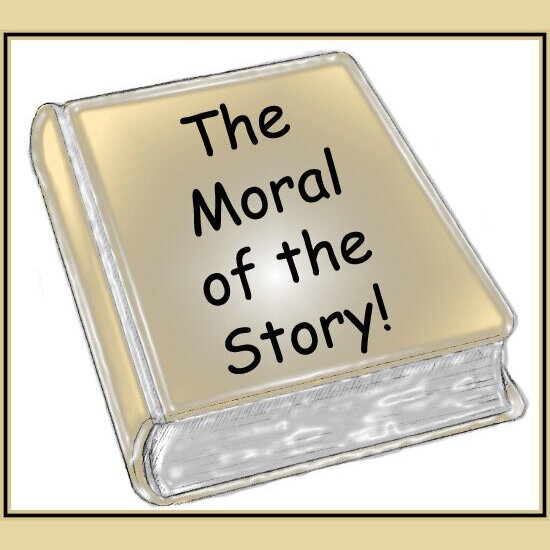The Moral of the Story? What?
I see this all the time when I am reading plays, and when I am experiencing plays in a theatre. Often, I can clearly see the playwright telling the audience “The Point of the Play,” or “The Moral of the Story.”
And it just reeks of bad playwriting.
The truth of the matter is, if you are too transparent in your attempt to make the audience fully understand why you wrote this play, what the point is, what the moral is, why this is an important play and on ad nauseam, they are going to run out of the theatre, and the only emotional experience you are going to give your audience is the ambivalence they feel for you as a playwright.
So don’t do that. Don’t even think about telling the audience what your play is about or what it means.
One of the most important principles of storytelling a playwright can utilize in her work, is to let the experience she creates on stage, speak for itself.
A picture speaks a thousand words, but a live emotional experience created on stage speaks a Billion words, for it is not just visual, it is also auditory, and kinesthetic, and it is communal too. It is alive!
The best theatre creates a powerful moment in time for the actors and the audience.
And as soon as a playwright tries to siphon a meaning into this live event, he kills the live experience, and the myriad of emotions, perceptions and perspectives your audience inhabits. “The Point of the Play” is what your audience decides after you turn them upside down and shake them around with the live emotional experience you created called a play!
As soon as you, as the creator, try to insure the audience gets “Your Point of the Play,” you kill your play.
I love to go out for drinks or dinner after watching a play with a group of people for EVERYONE has a different take on the experience the group just shared. Everyone has a different “take home” from the shared theatrical experience. Fantastic!
Maybe they see things in your play that you never knew were there!
And that is the power of creating an emotional experience on stage. You let the story inform the audience, not your opinion.
So if you are writing a play about the Mafia in New Jersey, or The Black Lives Matter movement, or how relationships are coming undone in this pandemic, just create a live, exciting and compelling story. Let your play speak Billions! Don’t try to corral it with your one meaning to insure the audience GETS it.
The more specific, concise and truthful you are as a storyteller, the more universal it will be for the audience and the audience will feel it and GET it big time!
As soon as you try to teach, or preach, or sum up, or moralize, you have killed your play.
Your audience is not there to be TOLD anything.
They are there for an emotional experience.
